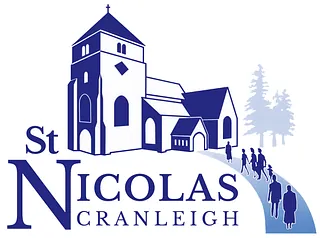02/07/2024 0 Comments
Sermon Notes - 17th December 2023
Sermon Notes - 17th December 2023
# Sermons

Sermon Notes - 17th December 2023
Authority, and how we deal with it, is an important part of life, and gives a useful and secure framework in which to operate. Without authority, society collapses into a state of anarchy, in a way we have seen all too often in our world!
But there are times when authority can be stifling. Times when it can take such rigid control that there’s no space for vision!
John the Baptist had vision, but came up against authority at a very early stage of his ministry. He had begun to preach and to baptise, and the crowds were flocking to him. But as so often happens with people who are a bit ‘wacky’ or ‘different’, he was seen as a threat. And so the religious leaders, the Pharisees sent a delegation to question him, as we heard in this morning’s Gospel.
What they asked of him was, "Who are you? What do you think you’re doing?"
And John uses this questioning as an opportunity to witness to the coming Christ. To slip in a word or two about the momentous importance of the one who is to come.
There are two types of authority. There’s the authority which is automatically conferred on someone simply because of his or her position. Such as the Pope, or the King, or the Prime Minister. Or at a more local level, those who are professionals in their chosen field, such as doctors, lawyers, teachers, priests, and so on.
This is an authority which can be sensitively used for encouragement and enabling and getting the best out of people and situations, so that the best doctors are those who heal both body and mind, the best lawyers are those who inspire confidence in their clients, the best teachers are the ones who inspire their classes, and the best Priests are . . . . I’ll leave you to answer that!
But the other sort of authority, is a kind of inner authority. This is not conferred, but needs to be earnt!
It’s the sort of authority which develops within a person as a result of deep experience. The sort of authority which can be sensed whenever you’re with that person. It may go with high office, but it doesn’t depend on it.
The first sort of authority, when used in the wrong sort of way, is incompatible with the theme of ‘Love’ which is at the heart of our worship today, but the second sort isn’t, because it’s an authority which can be operated lovingly, and it expounds the model of loving service which is at the heart of Christ’s coming to earth!
And this was the kind of authority exercised by both John the Baptist and by Jesus himself. Neither of them had been conferred with positions of power, but both of them possessed immense inner authority – the sort of authority which comes directly from God.
Of course, problems arise when human authority and inner authority are in conflict, as both John the Baptist and Jesus discovered. In the end, they both gave their lives rather than deny their inner authority.
And very often that sort of stark choice confronts those who exercise inner authority. In our society, such people may not be asked to forfeit their physical life, but they may well be ostracized and humiliated.
And so it’s very tempting to hide behind human authority, and never exercise any inner authority at all. If I assume human authority is always right, I’ll never need to challenge. I’ll never have to stand up and be counted. I’ll never have to face the unpleasantness of being in a minority situation.
But it’s not like that for Christians, because we all have inner authority. We all have the responsibility of ensuring in the best way we can, that our society maintains Christian values. We may not all be John the Baptists, we may not all be capable of preaching the gospel, but we’re all responsible for passing on the Christian message. St Peter describes it as: "the priesthood of all believers".
And we’ve all been given different, and complementary talents by God, in order to pass on the Christian message to our generation. What we are called to do, is to develop those talents to their full, so that if somebody says to us: "Who are you? What do you think you’re doing?", as they did to John the Baptist, then, we too, should treat it as an opportunity to witness to Christ, assured in the knowledge that we will be able to respond from real inner authority, and that we are doing God’s will!


Comments